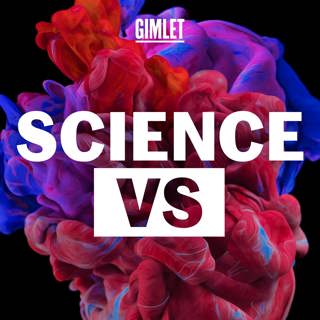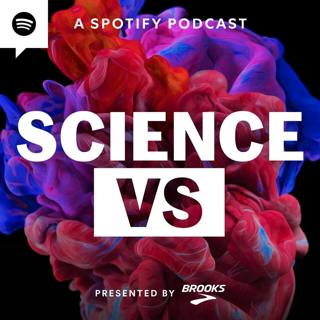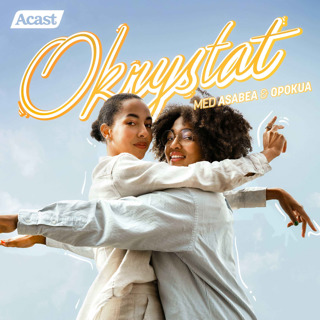
Vaccines - Are They Safe?
Autism, seizures, and overloaded immune systems. Could these really be side effects of vaccines? This week, we dive into the science to find out how safe vaccines really are. We also talk to public health researchers Prof. Dan Salmon and Prof. Amy Kalkbrenner and neurologist Prof. Ingrid Scheffer. Check out our full transcript: http://bit.ly/2PrqtX3 Our Sponsors:Cole Haan | Google Cloud, Maker of GSuite | Ziprecruiter | WPEngine Credits: This episode has been produced by Heather Rogers, Wendy Zukerman, and Shruti Ravindran. Production help from Rose Rimler. Our senior producer is Kaitlyn Sawrey. We’re edited this week by Blythe Terrell and Annie-Rose Strasser. Fact checking by Michelle Harris, with help from Rose Rimler. Sound design by Martin Peralta. Music written by Bobby Lord. For this episode we also spoke with Dr. Saad Omer, Dr. Neal Halsey, Dr. Paul Offit, Dr. Frank DeStefano, and Prof. Alison Buttenheim. And an extra thanks to Bonnie Stanway,Ivona Stamatoska, Reese and Walter Ludwig, the Zukerman Family, Joseph Lavelle Wilson and - of course! - Leo Rogers. Selected References:The National Academies (aka Institute of Medicine) report on vaccine safety A report on the genetic underpinnings of epilepsyThis study looked for neurologic disorders after the MMR shot in half a million kids This one looked at all children born in Denmark between 1991 and 1998 Learn more about your ad choices. Visit podcastchoices.com/adchoices
14 Sep 201738min

Detoxing & Cleanses - Do They Work?
Juice cleanses, fancy foods, sweat, charcoal, and colonics-- is there a scientifically proven way to ‘clean out’ your system? This week, we dig in deep to the science of detox and turn ourselves into guinea pigs for a juicing experiment. We talk to a passionate proctologist named Prof. Graham Newstead, as well as nutrition researcher Prof. Stella Volpe and toxicologist Dr. Susanne Ramm. Check out the full transcript here: http://bit.ly/2LEsSwr Our Sponsors: Cole Haan | Google Cloud, Maker of GSuite | Cotton Inc + Madewell Credits: This episode has been produced by Shruti Ravindran, Wendy Zukerman, and Heather Rogers. Our senior producer is Kaitlyn Sawrey. Edited by Annie-Rose Strasser and Blythe Terrell. Fact checking by Michelle Harris, with help from Rose Rimler. Sound design by Martin Peralta. Music written by Bobby Lord. Extra thanks to Lynn Levy, the Zukerman Family, Joseph Lavelle Wilson, Torey Armul, Dr. Naveed Sattar, and Dr. David Juurlink. Selected ReferencesOn the inability of activated charcoal to absorb wind, aka the ‘poo in a blender’ study Review paper on the dangers of colonics Why liquids don't make you feel very full An investigation of capsaicin, aka the spice in spicy food, for weight loss Learn more about your ad choices. Visit podcastchoices.com/adchoices
7 Sep 201735min

New Season... Coming Soon!
Science Vs is back in your ears next week! This season we're going to dissect the science behind detox diets, the safety of vaccines and whether America can run on 100% renewable energy. We also figure out whether vitamins and supplements are a waste of your money, why the bees are dying and where the heck the Male Pill is at?! Go to sciencevs.show/fall to check out Wendy's favourite episodes of other Gimlet shows coming back this Fall. Fact you next week! Learn more about your ad choices. Visit podcastchoices.com/adchoices
31 Aug 20172min

Artificial Sweeteners - not so sweet?
Low calorie, no calorie and so sweet. Artificial sweeteners just seem too good to be true. Is there a catch? We dig into two big questions: Do artificial sweeteners cause cancer, and are they making us fat? We talk to Prof. John Glendinning, Prof. Susie Swithers, Dr. Kieron Rooney, and PhD student Jotham Suez about the latest research. Plus we do a fun experiment with PJ Vogt and Alex Goldman from Reply All! Also, please sign up for our brand spanking new newsletter! We’ll share science that’s been blowing our minds, plus great content like the most amazing calculation from an academic of how much bigger 323 African Elephants are than nuclear waste. Head to: https://gimletmedia.com/newsletter/ Our Sponsors:Postmates - New customers get a $100 credit by downloading the app and entering the promo code SCIENCEWordpress - go to wordpress.com/science to get 15% off a new websiteHello Fresh - For $30 off your first week of meals go to hellofresh.com and enter the promo code SCIENCEVS30 Credits: This episode has been produced by Ben Kuebrich, Heather Rogers, Shruti Ravindran and Wendy Zukerman.Kaitlyn Sawrey is our senior producer. We’re edited by Annie-Rose Strasser. Production assistance by Stevie Lane. Fact checking by Michelle Harris. Original music and mixing by Bobby Lord. Extra thanks to Dr. Mary Pat Gallagher, Peter Bresnan, Euromonitor International and ubiome. Selected References:Prof. Susie Swithers’s study on artificial sweeteners and feeding behavior in ratsA 2015 systematic review of the relationship between artificial sweetener consumption and cancer in humansJotham Suez’s study on artificial sweeteners and the gut microbiome Learn more about your ad choices. Visit podcastchoices.com/adchoices
8 Juni 201751min

Nuclear Power - what are the Risks?
Fukushima. Chernobyl. Three Mile Island. There’s been some big nuclear accidents over the past few decades, but how dangerous is nuclear power really? We take you inside the core of America’s biggest nuclear power plant and trace what went wrong at Fukushima to try to figure out: when will the next meltdown happen? And what our chances are of getting cancer from it? This week we talk to Dr. Spencer Wheatley, Dr. Jonathan Samet, and Jack Cadogan, an executive at the Palo Verde Nuclear Generating Station. UPDATE! We’ve made a couple of small changes to this episode, thank you to all the listeners who picked up on them. 1. We called the energy that comes from nuclear power a chemical reaction… it’s not. It’s a nuclear reaction. Chemical reactions involve the electrons in an atom. Nuclear reactions involve the nucleus. 2. We said that the Joker became The Joker After falling into a vat of radioactive waste. This is disputed. It seems it was a vat chemicals.. But what those chemicals were , that’s unclear. 3. A clarification: We said that the waste that nuclear power produces in the US… 2200 metric tons per year… was like 323 male African Elephants. That was a weight comparison. They weigh roughly the same… It wasn’t a three dimensional size comparison. Nuclear waste is much denser than an elephant, and so it takes up much less room. And if you want to read the most amazing calculation from an academic of how much bigger 323 African Elephants are in 3D space you’ve got to sign up to our brand spanking new newsletter! To do that head to https://gimletmedia.com/newsletter/ And FINALLY! We got a lot of feedback from that episode that listeners really wanted to hear how nuclear power compares to other energy sources: like coal, solar and wind! Now we decided that to do a fair comparison that really needs it’s own episode - it wasn’t as simple as just throwing out some numbers. So we’re working on that episode for next season. Our Sponsors: Cloudflare - To learn more visit cloudflare.com/sciencevs Credits: This episode has been produced by Heather Rogers, Ben Kuebrich, Shruti Ravindran and Wendy Zukerman.Kaitlyn Sawrey is our senior producer. We’re edited by Annie-Rose Strasser. Fact checking by Ben Kuebrich and Heather Rogers. Original music and mixing by Bobby Lord. Extra thanks to Leo Rogers, Joseph Lavelle Wilson as well as Prof. Steven Biegalski, Prof. Mark Jacobson, Jussi Heinonen, and Dr. Eric Grant. Selected References:Radiation Basics Primer from the U.S. Nuclear Regulatory CommissionDr. Spencer Wheatley’s paper ‘Reassessing the safety of nuclear power’National Research Council Report on Health Risks from Low Levels of Ionizing Radiation Learn more about your ad choices. Visit podcastchoices.com/adchoices
1 Juni 201740min

Meditation
Silicon Valley CEOs, Tibetan monks, and crunchy hippies alike describe meditation as blissful and life-changing, but what does the science say? Can it reduce stress, increase your attention, and improve mental health -- or is all this focus on breathing just a bunch of hot air? Sit back, get comfortable, and focus your mind as we talk to Tim Ferriss, Professor Gaelle Desbordes, Dr. Clifford Saron, and Dr. Britta Hölzel. Please note: we have updated this episode. We removed a reference to Peter Thiel, the founder of Paypal. He was a guest on Tim Ferriss' show, but didn't discuss whether he meditates. Our SponsorsEveryday Bravery - Listen to Everyday Bravery, a podcast from Prudential, by going to everydaybravery.comWordpress - go to wordpress.com/science to get 15% off a new website Credits: This episode has been produced by Shruti Ravindran, Ben Kuebrich, Heather Rogers and Wendy Zukerman. Kaitlyn Sawrey is our senior producer. We’re edited by Annie Rose Strasser. Fact checking by Ben Kuebrich. Music production and original music written by Bobby Lord. Extra thanks to Dr Jonathan Schooler, Dr Florian Kurth Aldis Wieble and Dr. Madhav Goyal. Selected References:CDC Report: Trends in the Use of Complementary Health Approaches Among Adults: United States, 2002–2012Review of Neuroimaging Studies on Meditators Meditation Programs for Psychological Stress and Well-being A Systematic Review and Meta-analysis - JAMA review of Clinical Trials with Active ControlsIntensive meditation training, immune cell telomerase activity, and psychological mediators - Dr. Cliff Saron’s study on telomerase activity after a meditation retreat Learn more about your ad choices. Visit podcastchoices.com/adchoices
25 Maj 201733min

True Love
What is love? With half of first time American marriages ending in divorce by the 20th anniversary, and infidelity being widespread, Science Vs asks: have we been lied to by our love songs? On today’s episode we explore: What happens to the brain when we fall in love? Is the compulsion to stay together biological? And, is monogamy really unnatural? We talk to Dr. Helen Fisher, Professor Larry Young, and Dr. Dieter Lukas about their labors of love. Our Sponsors:Everyday Bravery - Listen to Everyday Bravery, a podcast from Prudential, by going to everydaybravery.comVirgin Atlantic - Listen to their podcast, The Venture, wherever you get your podcastsZiprecruiter - try Ziprecruiter for free by going to ziprecruiter.com/sciencevs Credits: This episode has been produced by Wendy Zukerman, Heather Rogers, Ben Kuebrich, Shruti Ravindran and Rose Reid. Kaitlyn Sawrey is our senior producer. We’re edited by Annie Rose Strasser. Extra editorial help from Alex Blumberg. Production assistance from Stevie Lane. Fact checking by Ben Kuebrich. Music production and original music written by Bobby Lord. Special thanks to Joseph Lavelle Wilson, Austin Mitchell and to Professor Karen L Kramer, Professor Garth Fletcher, Dr. Alexander G. Ophir, Professor David Barash, Richard Bethleham . Check out Gail and Rose Reid's podcast Details Please. Selected References:CDC - Data on First Marriages in the United StatesHelen Fisher fMRI Paper on Early-Stage LoveLarry Young Review Paper on the Neurobiology of Pair BondingDieter Lukas’s Paper on the Evolution of Monogamy in MammalsThe monogamy camp - review paper arguing “we evolved to be monogamous” Learn more about your ad choices. Visit podcastchoices.com/adchoices
11 Maj 201745min

Antioxidants
Are chocolate, coffee and red wine actually good for us? Reading the news it seems that one day they are helping us live longer, and the next day they are giving us heart attacks. So what’s going on here? Host Wendy Zukerman and DJ/senior producer Kaitlyn Sawrey explore the science live on stage, with interview clips from Prof. Bruce Ames, Prof. David Sinclair and author Aidan Goggins. This show was recorded live at The Bell House on Thursday, March 23rd, 2017. If you want to listen to the Q&A after the show, sign up to become a Gimlet member for $5 a month. If you sign up for a year, you can receive a Science Vs t-shirt! Our Sponsors:Cloudflare - To learn more visit cloudflare.com/sciencevsWordpress - go to wordpress.com/science to get 15% off a new websiteHello Fresh - For $30 off your first week of meals go to hellofresh.com and enter the promo code SCIENCEVS30 Credits: This episode has been produced by Wendy Zukerman, Heather Rogers, Diane Wu, and Shruti Ravindran. Our senior producer is Kaitlyn Sawrey. Edited by Annie-Rose Strasser. Fact checking by Diane Wu and Ben Kuebrich. Sound design and music production by Matthew Boll, and mixed by Austin Thompson. Music written by Bobby Lord. Extra thanks to Martin Peralta, Rachel Ward, Eric Mennel and the Bell House, and live show art by Alice Lay (which you can see at facebook.com/sciencevspodcast) Further Reading:JAMA Review - Are antioxidant supplements associated with higher or lower all-cause mortality? David Sinclair’s Study: Resveratrol improves health and survival of mice on a high-calorie dietAlcohol and coronary heart disease: a meta-analysisCoffee Meta-analysis: Coffee consumption and mortality from all causes…Habitual chocolate consumption and risk of cardiovascular disease among healthy men and women Learn more about your ad choices. Visit podcastchoices.com/adchoices
4 Maj 201736min






















